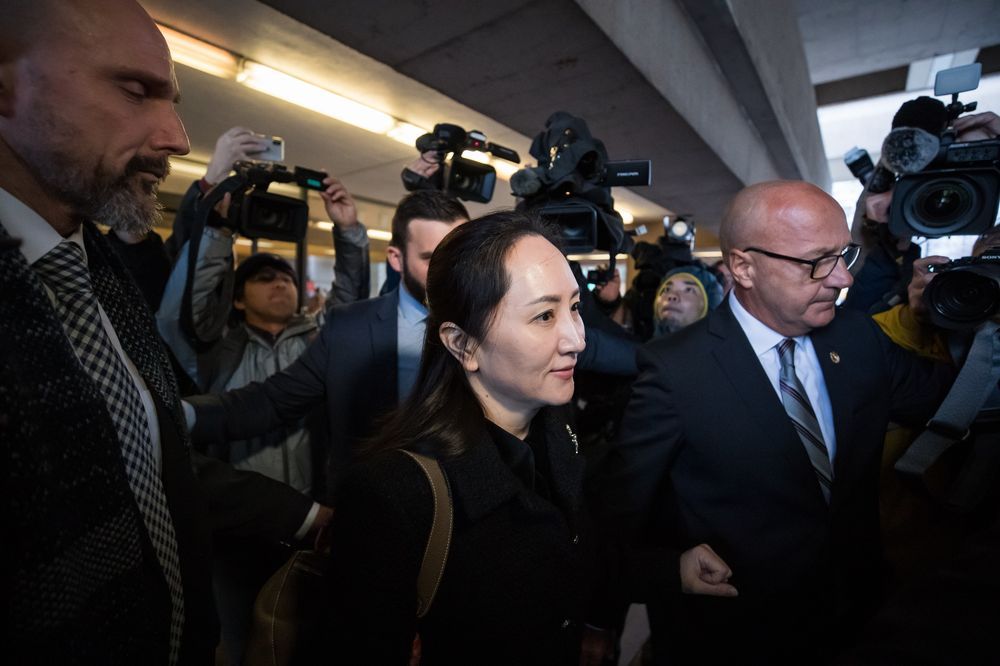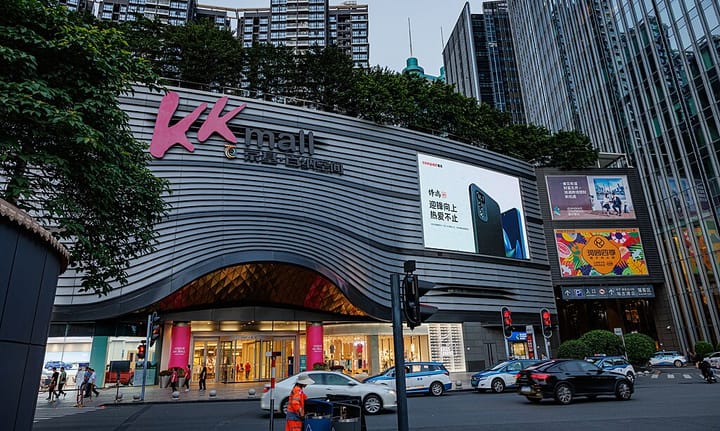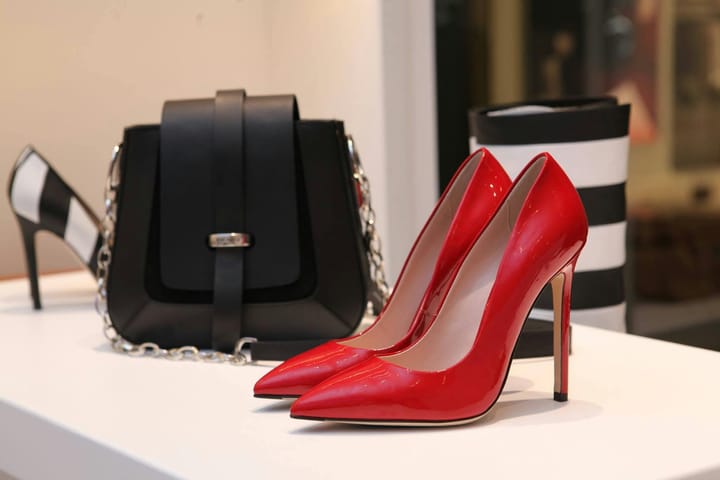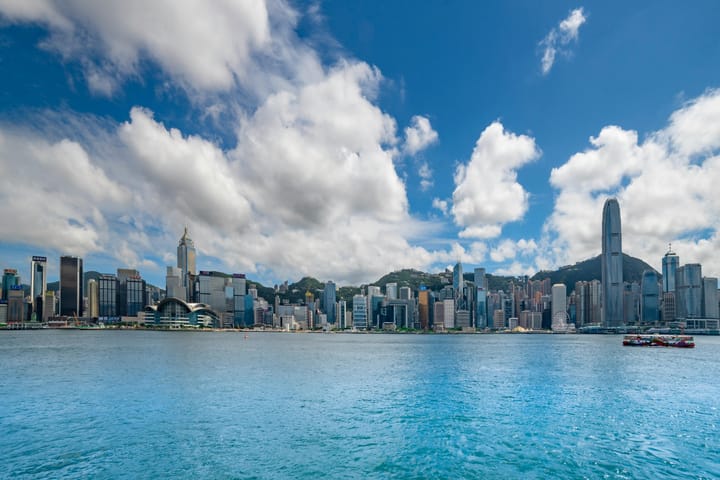Tensions between China and the US continue to rise after ruling makes Huawei CFO’s extradition more likely

A few minutes every morning is all you need.
Stay up to date on the world's Headlines and Human Stories. It's fun, it's factual, it's fluff-free.
On Wednesday, May 27, the Supreme Court of British Columbia decided that the extradition case against Huawei’s Chief Financial Officer (CFO), Meng Wanzhou, could proceed after prosecutors cleared the necessary hurdles to go ahead with the case.
Prosecutors are trying to prove that Meng should be extradited to the United States to face charges of fraud. The court deemed that the case would go ahead after prosecutors successfully argued that it met the threshold of “double criminality,” meaning the charges would be criminal acts in both Canada and in the US.
Meng was originally arrested in Vancouver, Canada, in December 2018 on the behest of the US government under allegations that Huawei, the Chinese telecommunications giant, and its CFO had engaged in attempts to steal trade secrets, obstruct a separate criminal investigation in New York and evade US sanctions on dealings with Iran.
Meng, the daughter of Huawei’s founder, Ren Zhengfei, was also charged with bank and wire fraud.
In response to the decision that the case would proceed, a spokesman for China’s Foreign Ministry, Zhao Lijian, characterized the charges as “a serious political incident” with Canada and alleged that the US was aiming to “bring down Chinese high-tech enterprises and Huawei.”
China’s point of view
From the start, the Chinese government has pushed back against the charges.
In a statement released by China’s Foreign Ministry after the US Department of Justice’s statement on the matter in January 2019, China accused the US of engaging in “political manipulation” over the matter.
Meng’s defense team, led by an American white-collar crimes lawyer named Reid Weingarten, argued similarly, suggesting that Meng was being used as a hostage in the political maneuverings between the two countries.
Huawei also said that they offered to sit down with Justice Department officials to discuss the accusation that a subsidiary, Skycom, was violating sanctions on doing business with Iran, an overture that was allegedly turned down by the US agency.
As for the charges of stealing trade secrets from US companies, Huawei claimed that a case involving robotic arm technology from US firm T-Mobile was already settled, and that the jury found no “willful and malicious conduct” in the case.
Regardless of the jury’s finding regarding malicious intent, T-Mobile did win their case against Huawei in 2017, with the Chinese firm found guilty of misappropriating T-Mobile technology. Huawei was subsequently ordered to pay T-Mobile US$4.8 million.
According to the federal indictment, Huawei is accused of stealing secrets from six US companies, not just one. The names of the companies, however, have not been made public.
US spying concerns
According to US officials, Huawei products also pose a privacy risk to consumers.
Over the past several months, Washington has made a concerted effort to push US allies towards taking hard stances against the company over the threat that their products, especially its 5G networks, could be used to relay information to Chinese intelligence agencies.
In February, US Secretary of Defense Mark Esper even warned European allies that they risked their alliances with Washington if countries allowed their 5G infrastructure to be built with Huawei technology.
Huawei has denied these accusations as well, claiming that they would be willing to sign “no-spy agreements” with governments around the world to help assuage any fears, and that they are committed to a “no-backdoors standard.”
It has been reported that US companies may be falling behind their Chinese competitors in the race to lay the groundwork for global 5G internet services, technology that is set to boost roaming Internet speeds, increase the digital capacities of businesses, and help spur the next generation of digital innovation.
Heightened tensions
As the latest Huawei case winds its way through Canadian and, potentially, US courts, political tensions are ratcheting up, especially over accusations of Beijing’s mismanagement of the coronavirus crisis.
In April, the state of Missouri filed a lawsuit against the Chinese Communist Party and other Chinese organizations for allegedly “lying to the world” about the virus.
Other disputes are also coming to the fore.
Late last week, President Donald Trump signed an order that would cancel the visas of about 3,000 Chinese graduate students studying in the US in research and technology fields.
After Beijing announced that it supported a bill in Hong Kong’s parliament that would make it illegal to undermine Chinese authority in the semi-autonomous city, US Secretary of State Mike Pompeo told Congress that US laws toward Hong Kong no longer “warrant treatment under US laws in the same manner” as they were applied before the handover from British rule in 1997.
Although it’s unclear what direct action may be taken in the near term, if any, in regards to the security law, some suggest that the US could revoke Hong Kong’s “special status” as a trading partner, which could have ramifications for the city’s economy.
Amid the tension, Wang Yi, China’s foreign minister, accused the US of pushing the relationship towards a “new cold war.”
As for the case against Meng, proceedings are expected to be lengthy. The next hearing is scheduled for next month, and will reportedly look into whether Canadian officials followed the law regarding her arrest.
Have a tip or story? Get in touch with our reporters at tips@themilsource.com
Sign up for daily news briefs from The Millennial Source here!




Comments ()